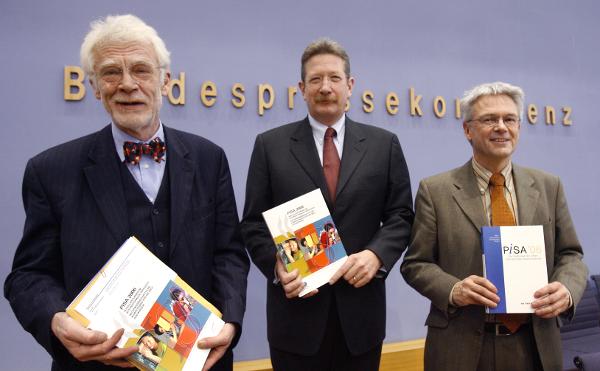Source

Source: picture-alliance/ dpa (c) dpa – Report
After the initial shock caused by the mediocre performance of German students in the OECD’s first PISA study (2000), the 2006 study finally showed upward educational trends. Education policymakers credited the improved scores to the reforms they had initiated, stressing, above all, students' improved performance in the natural sciences. On December 4, 2007, three important figures in the field of education policy presented the new PISA results to the public (photo, from left to right): Jürgen Zöllner (SPD), then president of the Standing Conference of the Ministers of Education and Cultural Affairs of the Federal States [Kultusministerkonferenz] and Berlin Senator for Education, Science, and Research; Heino von Meyer, director of the OECD office in Berlin; and Manfred Prenzel of the Leibniz Institute for Education in the Natural Sciences.

Source: picture-alliance/ dpa (c) dpa – Report